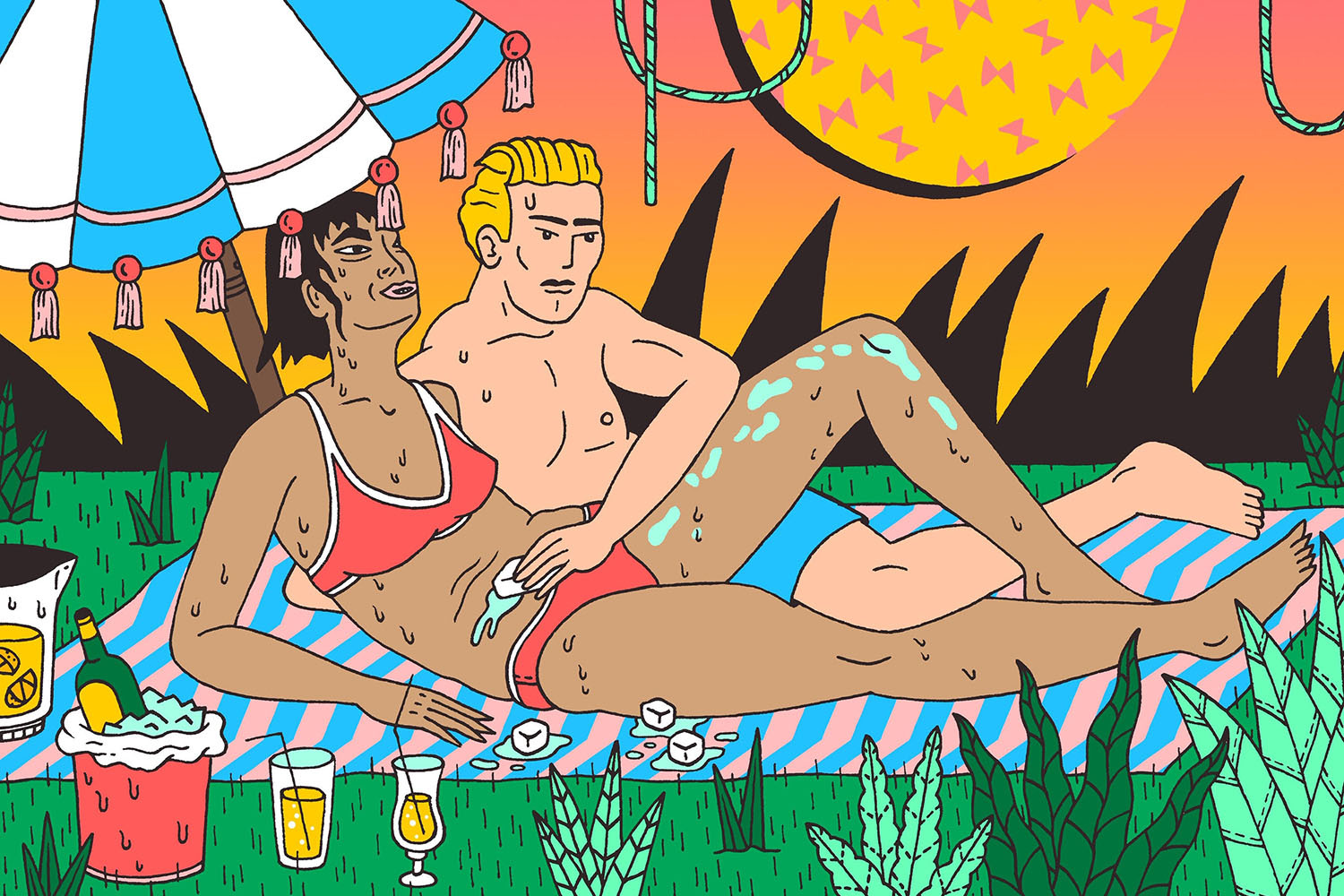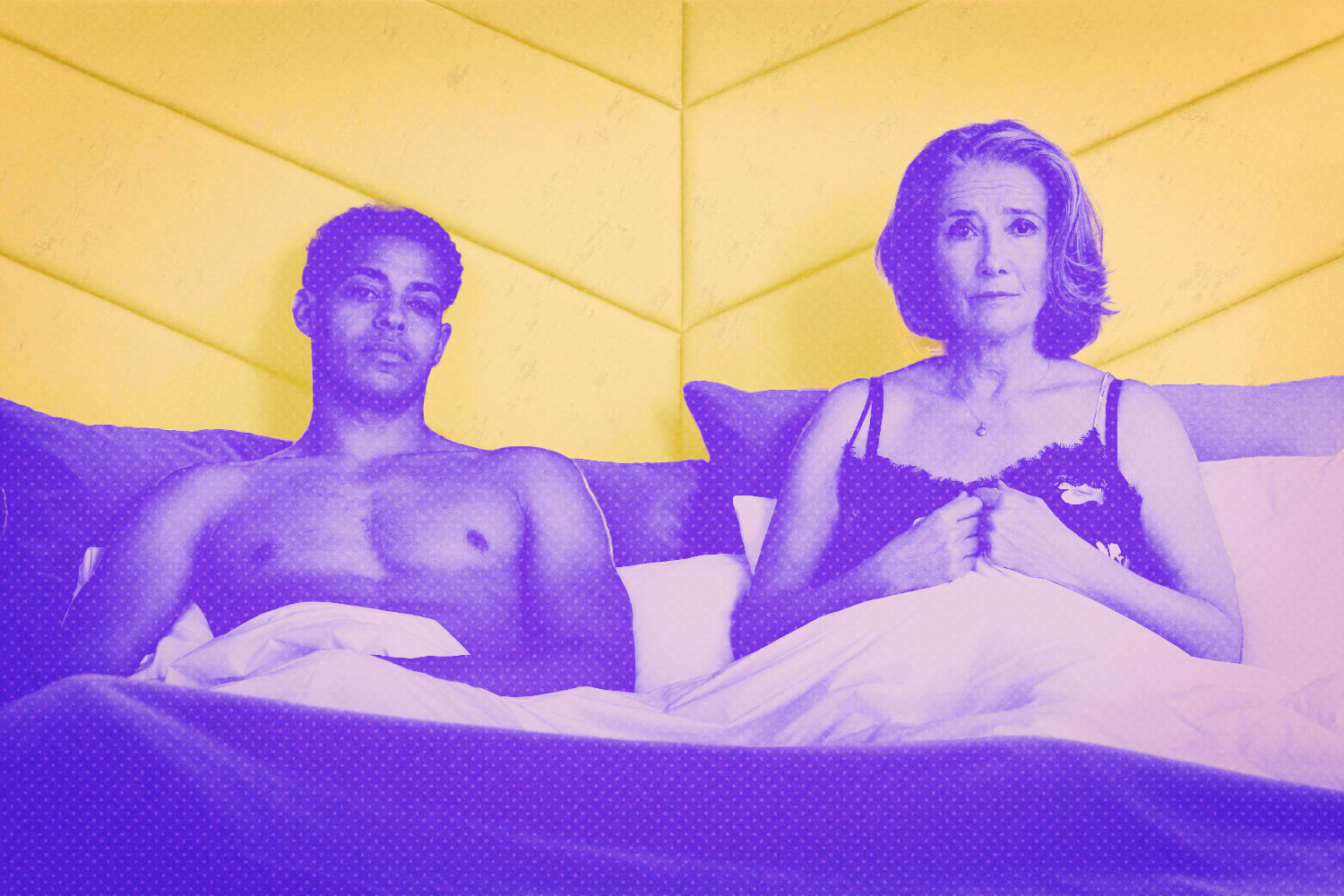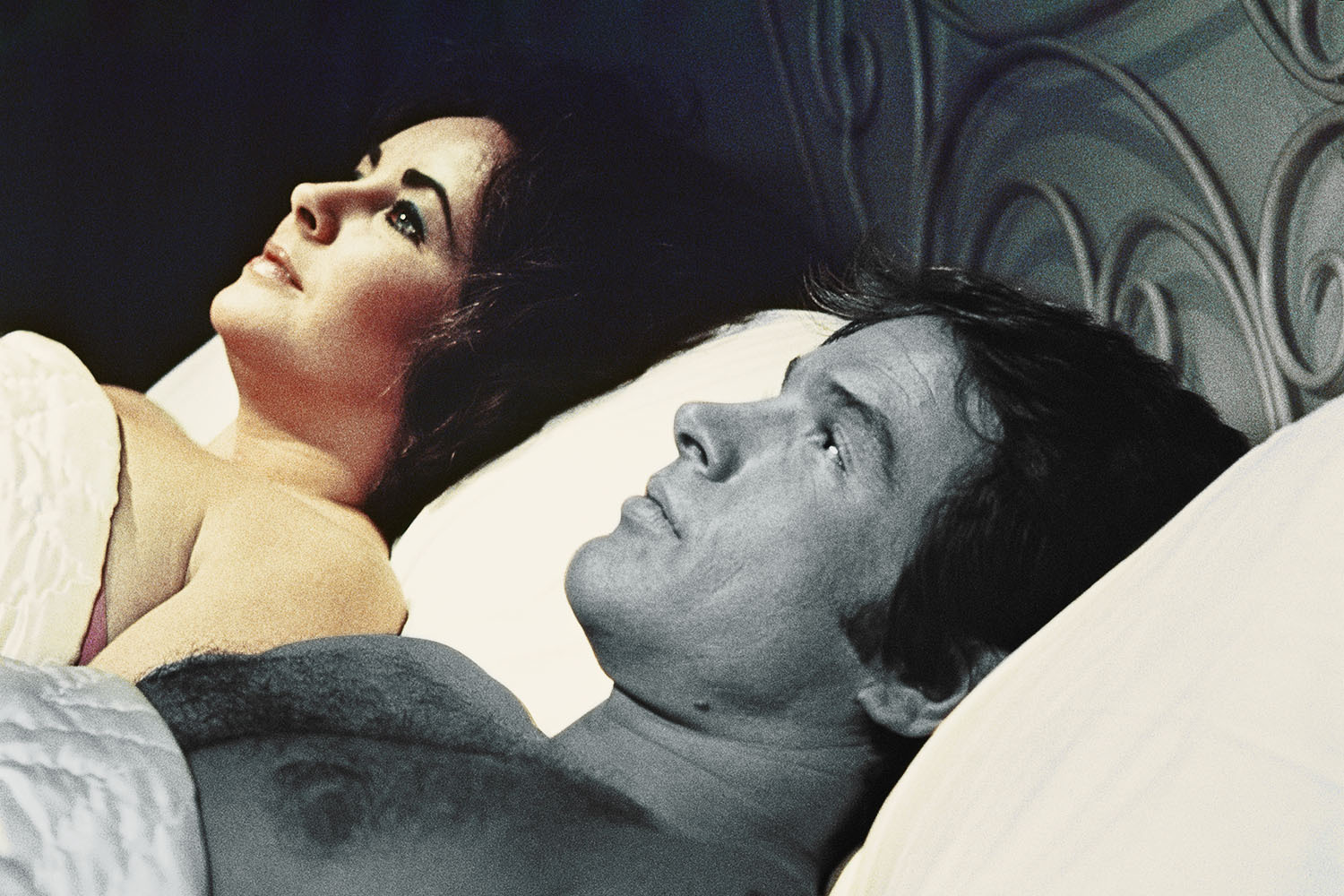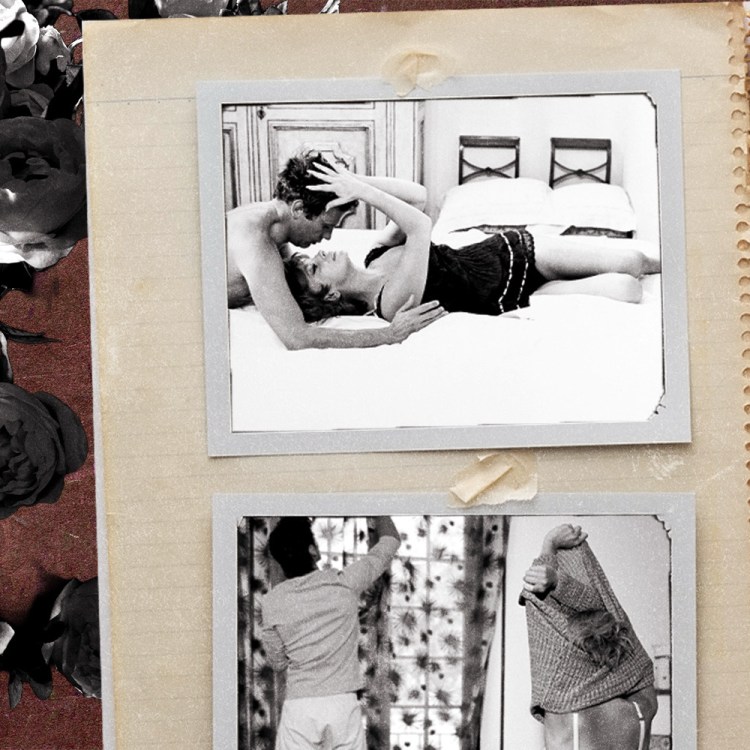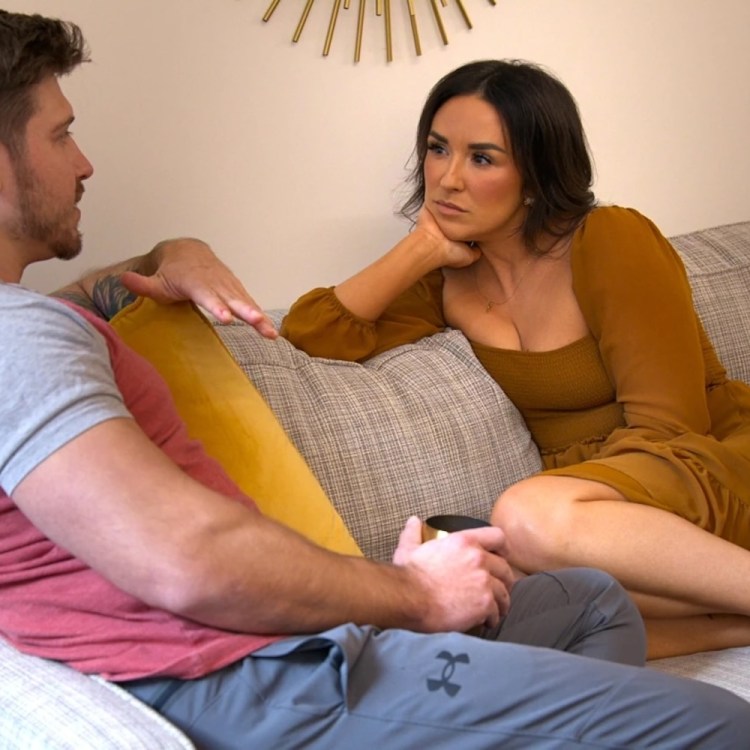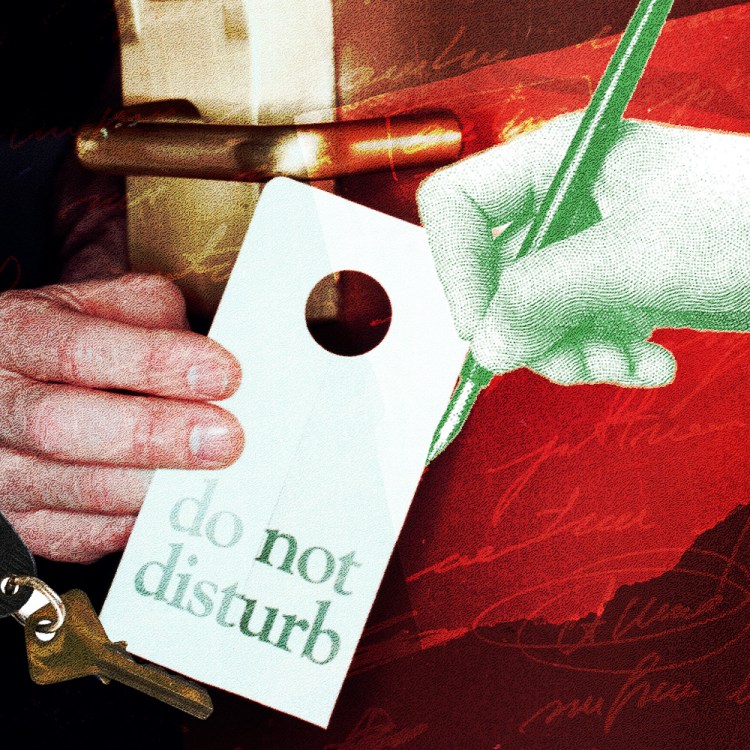Breaking: Men experience low sexual desire, too. This is not just a cis-female issue, as much as society would like us to believe that all men are cartoonishly horny at all times. Naturally, people do not like talking about this, but it’s a thing and we need to open up about it. Why? Because everyone deserves to have a wonderful and fulfilling sex life, no matter their gender identity or whatever kinds of nonsensical stereotypes and expectations come with it.
Men — and all AMAB (assigned male at birth) humans — are not socially conditioned to believe that “not wanting sex” or having a lower libido is acceptable. They’re told they should always be ready to go, rock hard and horny AF all the time, at the drop of a hat. Sorry folks, this just isn’t true. “Cis-men experience [low libido] for the same reasons other people experience a low libido,” says Dr. Lee Phillips (he/him), a licensed psychotherapist and certified sex therapist. These potential causes run the gamut: stress, body image concerns, illness, depression, anxiety, performance anxiety, being stuck in the same sexual routine and relationship issues with a partner.
Meanwhile, society’s “maculine man” ideal hurts absolutely everyone. In addition to making men feel ashamed of something perfectly normal and extremely common, these gender norms also find a way to shame the partners of men experiencing low libido. In heterosexual relationships (cis-het or otherwise) where an AMAB person doesn’t want sex as much as their partner, the woman (or AFAB person) often gets blamed for being “hypersexual” or “too into sex.” She’s considered “weird” for having desires because people raised female aren’t supposed to want sex as much as — and certainly not more than — their male counterparts. Again, false.
Regardless of gender identity, if you experience a lower libido, you are not alone — and it doesn’t matter whether this is a lifelong thing or something that’s recently begun. Every single person experiences desire differently. “We are all on a pretty standard statistical bell curve when it comes to libido, with the majority of folks in the center, which is about 68 percent” says Ty Lerman (he/him), a sex therapist and owner of Southwest Psychotherapy Associates, “But this leaves another 32 [percent] that are either slightly, or pretty significantly, outside the norm in terms of sex drive.” Getting turned on is a complex process born out of a mishmash of biological, psychological and social factors. It’s completely normal for people to have different libidos. There is no too much, too little, or just right.
Libido discordance (i.e. when partners have differing libidos) is the single most common issue brought to couple’s therapy. It’s an everyone issue and it deserves to be discussed. Too many people are suffering in silence feeling broken, dirty and/or wrong for something that is entirely normal.
Luckily, you’re not left high and dry if you’ve found your libido lagging. There are tried and true, sex therapy-approved interventions and practices that can help.
Take penises off the table for a hot minute
One of the biggest libido killers for people with penises is the idea that their penis has to be involved every single time they have sex. And not only that, but that penetration has to be involved in every single kind of sex. Frankly, that’s a lot of work to put into something that is supposed to be pleasurable. There’s so much pressure to perform in a certain way that it can make sex feel daunting. Anxiety around being able to “get it up” is a huge boner-killer and can weaken desire for sex over time.
Instead, focus on the many other kinds of sex that happen to be out there — sex that doesn’t have to involve your penis. Lucy Rowett (she/her), a certified sex coach and clinical sexologist. suggests first returning to erotic touch without the expectation of sex taking place. “Get back to touching each other with no expectation of it going further,” she says. “[Try] making out, kissing, flirting, holding hands or massage. Just make time to be intimate with each other.” These are the building blocks of desire: intimacy that doesn’t contain the pressure of taking things further. This can lead to other kinds of sex: Oral, hand stuff (knee stuff?) and whatever else you can think of, really. Get creative.
Weirdly enough, when clients take erections off the table, desire (and erections) tend to find their way back to them organically.
Rule out any medical concerns
A lack of desire is often linked to underlying medical issues. Lerman suggests having your testosterone levels checked. This can be especially helpful if this has been an ongoing issue. You should also have your thyroid and heart checked for any issues.
It’s always good to be sure there’s nothing going on medically so that you and your doctor can decide on a treatment plan that works for you. If there are no medical concerns, Phillips says that your low sexual desire is likely fixed in the psychological realm. Whether you have medical issues or not, it’s always a good idea to see a couples’ therapist who specializes in sexual concerns with your partner.
Figure out your conditions for good sex
We all have things that turn us on, be it alien egg implantation or regency era romance, but very few of us have truly examined the larger context that kindles our desire. As previously mentioned, desire isn’t just one thing; it comes from a combination of social, cultural and biological factors.
Cyndi Darnell (she/her), a sex therapist and author of Sex When You Don’t Feel Like It: The Truth About Mismatched Libido & Rediscovering Desire, suggests considering the following questions: When you have enjoyed sex in the past, what made it sex worth wanting? What conditions and contexts allowed and encouraged it to thrive? What would it be like to share this knowledge with your partner?
When you’re able to identify and unpack the conditions that you need to get in the mood for sex, it makes creating those conditions a lot easier. This means being able to discuss your desires openly. “Sex, at its heart, is all about communication,” Phillips says. “If a man can share why he is experiencing low desire in a safe environment, this can be a game changer. He can then share with his partner what may turn him on.”
Have fun with it
Good sex is about the journey, not the destination. Phillips reminds us that pleasure should be the goal, not orgasm. “Sex can include multiple activities and orgasm is a bonus, but it is not required,” he says.
Unsurprisingly, the most important part of making desire pop is actually enjoying what you’re doing. “If it’s more work than fun, we need to take a step back and reconnect with the fun part of ourselves and our relationship to get back to that headspace,” Lerman adds.
This “fun” aspect doesn’t have to look any particular way. It’s all about creativity. Maybe you introduce some kink to your relationship, or some sensation play, or explore erogenous zones. The best way to get the erotic juices flowing is to let go, get weird with it, and see what happens.
Desire might be a “complicated” psychophysiological state, but the more you engage with it, the easier it becomes to experience. So get after it, be willing to explore and enjoy the play for what it is: play.
The Charge will help you move better, think clearer and stay in the game longer. Subscribe to our wellness newsletter today.


